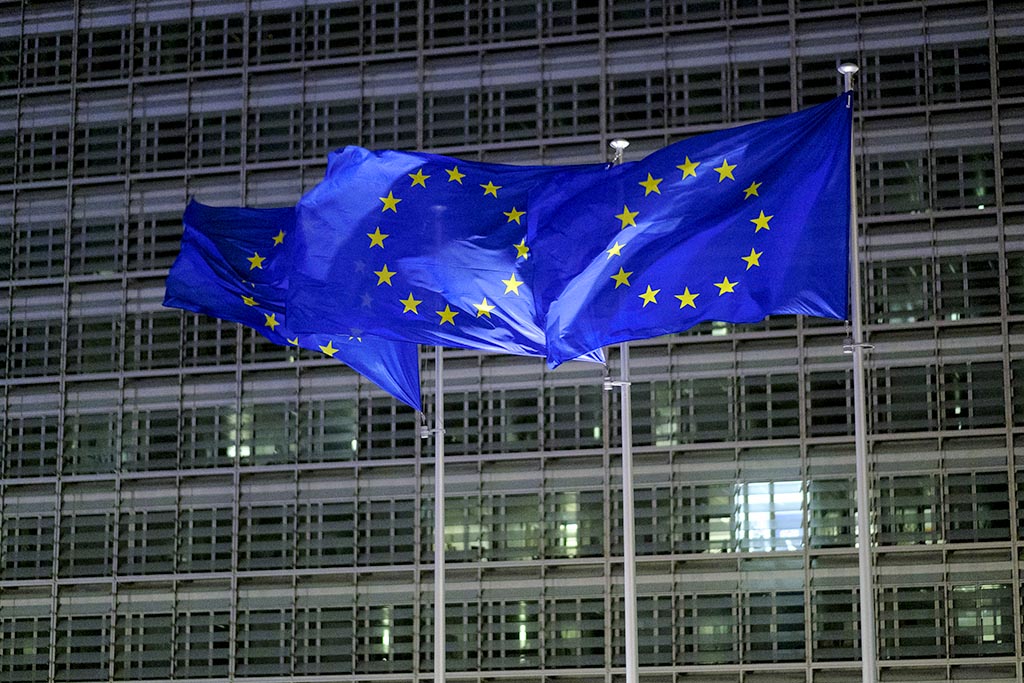By V4 Agency
There are a growing number of questions with regard to the EU’s joint vaccine procurement. Last week it emerged that the vaccine distribution is not based on a pro-rata population key. V4NA tried to find out who – and serving what interests – has exerted political pressure on behalf of one or another vaccine manufacturer. Meanwhile, the vaccine appears to be the only solution against the pandemic.
To say that the anti-covid vaccines are today’s most valuable goods is perhaps no understatement. Although thousands, maybe hundreds of thousands of lives can be saved if people receive the jab in time, Europe is witnessing a growing number of anomalies with regard to Brussels’ joint vaccine procurements.
A cascading number of European countries – including Slovenia, Spain, Germany, France, and Italy, among others – have paused the use of the coronavirus vaccine from the British-Swedish pharmaceutical company AstraZeneca in their vaccination campaigns. The move came after reports of severe blood clots in some recipients, although a clear causal relationship has not yet been scientifically proven.
The European Medicines Agency (EMA) responded to the unfolding situation in a statement on Monday, saying that EMA has been reviewing reports on thromboembolic events in some vaccinated people since Friday. EMA also emphasizes that the benefits of the coronavirus vaccine outweigh the risks of possible side effects.
The AstraZeneca vaccine was authorised by the European Commission at the end of January.
European Commission President Ursula von der Leyen announced on Twitter that the commission had granted authorisation for the use of the AstraZeneca vaccine in the EU. The president stressed that she expected the company to deliver the 400 million doses as agreed. “We will continue doing all we can to secure more vaccines for Europeans, our neighbours and our partners worldwide,” the EC chief added.
In its statement, the European regulator wrote: “EMA’s human medicines committee (CHMP) has thoroughly assessed the data on the quality, safety and efficacy of the vaccine and recommended by consensus that a formal conditional marketing authorisation be granted by the European Commission.”
To remain on the safe side, however, the statement also said: “Although large numbers of people have received COVID-19 vaccines in clinical trials, certain side effects may only emerge when millions of people are vaccinated.”
The French daily Le Monde disclosed the information that the Pfizer-BioNTech and Moderna vaccines were still being tested and there were some problems with both after the EU had authorised their use. The daily based this information on the fact that hackers, allegedly Russians, have accessed and uploaded confidential documents to the dark web back in December last year.
According to Le Monde, EMA has raised three main objections to the Pfizer-BioNTech vaccine:
- EMA has not yet had the opportunity to inspect some production sites,
- data were missing on vaccines intended for mass production and placement on the market,
- the quality of the vaccines sent for testing was different from the quality of the vaccines that the pharmaceutical company sent into mass production.
Some of the leaked letters suggest that the EU institutions exerted pressure on EMA to authorise the vaccine in EU member states, after similar US and British agencies had already green lighted the limited use of the jab. Other documents reveal that there are tensions between the European Commission and the medicines agency, and some unpleasant negotiations took place during the vaccine’s evaluation period.
In a statement EMA underlined that some of the correspondence had been manipulated by the perpetrators prior to publication in a way which could undermine people’s trust in vaccines.
V4NA has sent questions to the European Commission and the European Medicines Agency regarding the vaccines.
Our questions to the Commission were:
- Why have you exerted political pressure on the medicines agencies?
- Why should, after this, European citizens trust the EU bodies?
The questions we asked of EMA were the following:
- When, where and in what circumstances have you met representatives of the vaccine manufacturers? As to the discussions, how much travel was involved?
- What gifts have you accepted from the manufacturers? Have the manufacturers tried to promote their own products against the vaccines of other manufacturers?
- Under what political pressure have you decided to authorise the use of which vaccine, and when?
Apparently, Brussels also refuses to ensure the transparency of the procurement process; it has refused to publish the contracts.
In response to an earlier question by V4NA, EC spokesman Stefan De Keersmaecker said the contracts contained clauses on all issues, including late delivery, adding however that the contractual details could not be disclosed.
“That information is confidential, so we cannot share it. Yet we try to use all of the means at our disposal to make sure that they are delivered as early as possible,” the spokesman said.
However, they made and exception with the AstraZeneca contract. The pharmaceutical company has agreed to disclose the contract concluded between the two parties on 27 August, 2020, with the exception of confidential information (e.g. parts containing billing information).
